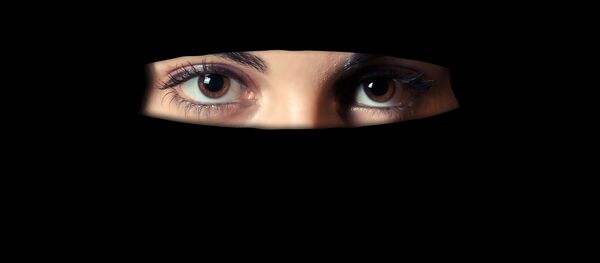Tagouri, 22, will be fully dressed of course, as Playboy no longer features nude women, but her decision to do the interview has sparked controversy, particularly in the Muslim community.
— Noor Tagouri (@NTagouri) September 25, 2016
“I know what it’s like to have the narrative of our community be skewed and exploited in the media,” she told Playboy. “I was like, ‘Hey, I know what it’s like to be misrepresented in the media. I won’t do that to you. I want to tell your story because it’s important and deserves justice.'”
Many are celebrating Tagouri’s decision as brave and bold, and helping to increase the visibility of the experiences of Muslim women for a new audience. With Muslim culture increasingly implicated in mainstream politics, the women, whose head scarfs make their faith immediately visible everywhere they go, must have their voices heard by those who engage in the conversations.
Not everyone is pleased, however.
The editor in chief of the Muslim women’s website Altmuslimah, Asma Uddin, disagrees, and coined an op-ed for the Washington Post denouncing Tagouri’s appearance in a magazine best known for what many consider to be softcore pornography.
“But the Playboy interview is a step too far. It represents Muslim women, as purportedly represented by Tagouri, not on their own terms but in Playboy’s terms — and, in the process, mocks the very ethics and morals the hijab is religiously intended to reflect,” Uddin wrote. “The hijab, though politicized in a variety of contexts, is at its religious core a symbol of chastity and spiritual connection to God. As one prominent Islamic scholar has explained, the hijab is ‘essentially a mode of living’ that reflects the sanctity of privacy and private spaces. In other words, it is a repudiation of the voyeurism Playboy is fundamentally about.”
Indeed, a core tenet of the “Playboy Philosophy” is to oppose “religiously mandated, chastity-centered codes of sexual morality,” Uddin noted, ultimately declaring that she believes that Playboy is mocking the hijab, using it as a “costume,” for their “wardrobe of fetishes.”
Other Muslim women have offered similar opinions, expressing their disappointment in media outlets including The Independent, The Huffington Post, Muslim Vibe, and more. Some have taken their discontent with Tagouri’s personal choice to social media, using the hashtag “#hoejabi.”
Tagouri, a well-spoken and vibrant young woman, does not appear to be concerned by the criticism.
— Noor Tagouri (@NTagouri) September 28, 2016
“You know when something feels right in your heart/gut. And you follow it. And you don't know why you soon find out the reason. That's faith,” Tagouri tweeted on Tuesday.




